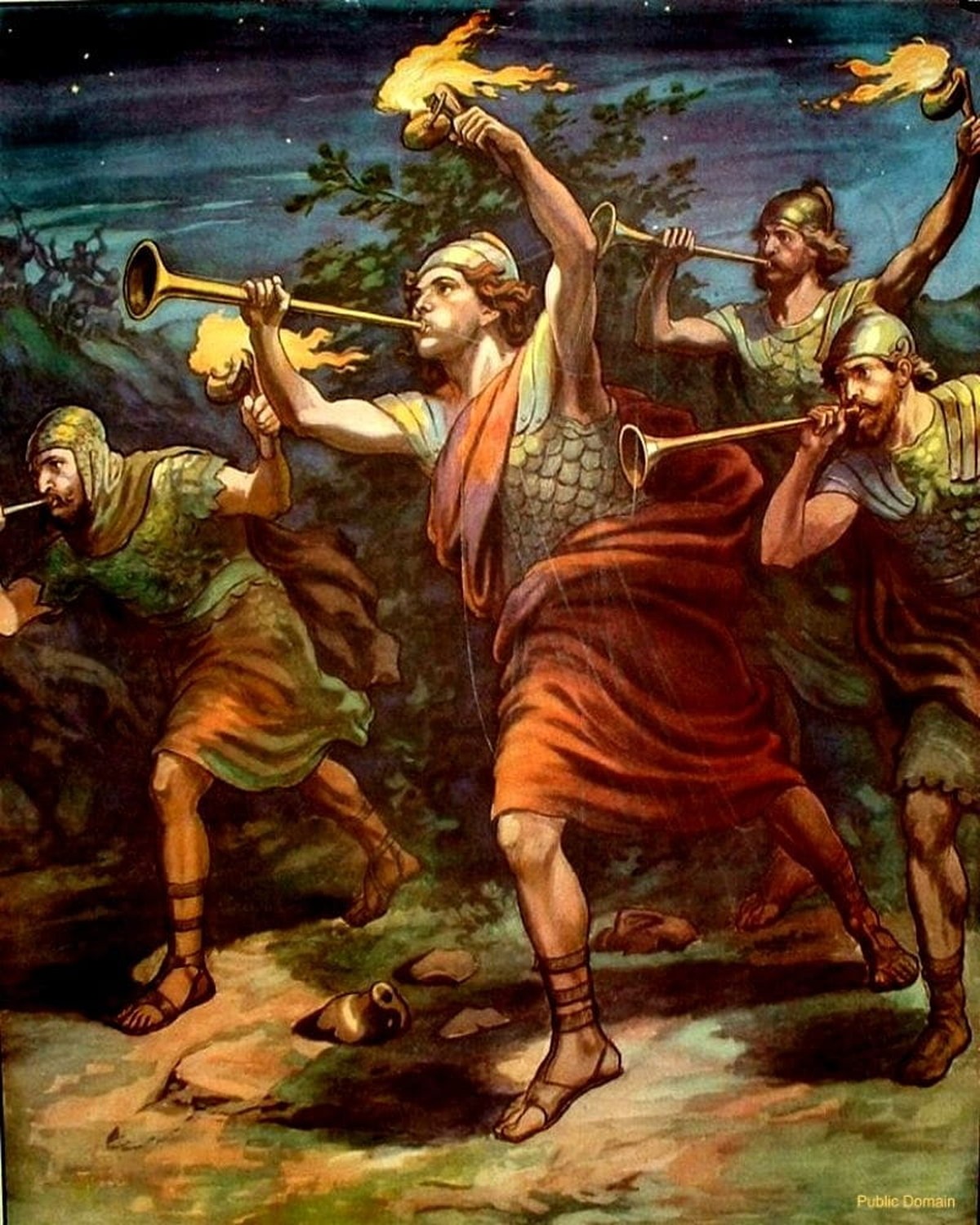The Unforgettable Legacy Of Jason Gideon In Criminal Minds
In the intricate world of criminal profiling, few characters have left as indelible a mark as Jason Gideon from Criminal Minds. As one of the original and most pivotal members of the Behavioral Analysis Unit (BAU), Gideon served as the team's senior supervisory special agent and a foundational mentor, shaping the very essence of how the BAU approached the darkest corners of the human psyche. His profound insights, empathetic approach, and often melancholic wisdom made him a fan favorite and a cornerstone of the show's early seasons, establishing the high bar for psychological depth and procedural intensity that Criminal Minds would become known for.
His tenure on the show, though shorter than many of his colleagues, was packed with moments that defined the series' tone and explored the immense psychological toll of dealing with pure evil. Jason Gideon wasn't just a profiler; he was a philosopher, a weary sage, and a man deeply burdened by the horrors he witnessed, yet tirelessly committed to understanding them to protect the innocent. His character arc, from a brilliant leader to a man seeking solace from the darkness, remains one of the most compelling narratives in the show's history, prompting viewers to reflect on the true cost of fighting monsters.
Table of Contents
- Who Was Jason Gideon? A Profile of the BAU's Founding Father
- Gideon's Unique Profiling Methodology
- Key Arcs and Defining Moments
- Relationships Within the BAU
- The Profound Impact of His Departure
- The Enduring Legacy of Jason Gideon
- The Man Behind the Mind: Mandy Patinkin's Portrayal
- The Name "Gideon": A Brief Reflection
- Conclusion
Who Was Jason Gideon? A Profile of the BAU's Founding Father
Jason Gideon was introduced in the pilot episode of Criminal Minds as a highly respected, almost legendary, profiler within the FBI's Behavioral Analysis Unit. His reputation preceded him, built on a career marked by groundbreaking insights and a near-mythical ability to get inside the minds of the most disturbed criminals. He wasn't just good; he was considered one of the best, if not *the* best, a true pioneer in the field of criminal psychology. His approach was often unconventional, relying heavily on intuition, deep psychological understanding, and a profound empathy that allowed him to connect with victims and perpetrators alike, albeit at a great personal cost.Personal Data: Jason Gideon
| Full Name | Jason Gideon |
| Occupation | Senior Supervisory Special Agent, FBI Behavioral Analysis Unit (BAU) |
| Affiliation | Federal Bureau of Investigation (FBI) |
| Status | Deceased (as of Season 10, Episode 13: "Nelson's Sparrow") |
| Portrayed by | Mandy Patinkin |
| First Appearance | Season 1, Episode 1: "Extreme Aggressor" |
| Last Appearance | Season 3, Episode 2: "In Name and Blood" (regular); Season 10, Episode 13: "Nelson's Sparrow" (flashbacks/guest) |
| Notable Traits | Exceptional profiler, empathetic, philosophical, chess enthusiast, birdwatcher, often quotes scripture or literature. |
The Architect of the BAU
Before the series even began, Gideon was instrumental in shaping the BAU. He wasn't just a member; he was a foundational pillar, responsible for hand-picking and mentoring some of the unit's most brilliant minds, including Dr. Spencer Reid, whom he saw as a prodigy. His influence on Reid, in particular, was profound, as he guided the young genius through the complexities of human behavior, teaching him to look beyond facts and figures into the emotional landscape of crime. Gideon's methods, which often involved immersing himself in the mindset of the unsub (unknown subject), were pioneering and sometimes controversial, but undeniably effective. He understood that to catch a monster, one sometimes had to understand the monster's pain, fears, and motivations, a philosophy that became a hallmark of the BAU's approach.Gideon's Unique Profiling Methodology
What set Jason Gideon apart from other profilers, even within the elite BAU, was his deeply humanistic and philosophical approach. He didn't just analyze data; he sought to understand the *why* behind the horrific acts, delving into the psychological and emotional landscapes of both victims and perpetrators. His methods were often less about the cold, hard facts and more about the nuanced, subtle cues of human behavior. He believed that every criminal left behind a psychological signature, a breadcrumb trail of their inner world, which, if read correctly, could lead the team to them.Empathy as a Weapon
Gideon possessed an extraordinary capacity for empathy, a trait that was both his greatest strength and his ultimate vulnerability. He could step into the shoes of a victim, feeling their terror, and just as remarkably, he could often grasp the twisted logic of an unsub, understanding their motivations, no matter how depraved. This ability to empathize allowed him to construct incredibly accurate profiles, often predicting an unsub's next move or their ultimate goal. He frequently used this empathy to connect with individuals, whether they were traumatized survivors or cornered criminals, sometimes even talking them down from the brink. This empathetic approach, however, came at a steep price, as the constant exposure to human depravity chipped away at his own peace of mind. He was often seen quoting philosophers, poets, and even scriptures, seeking wisdom and solace in the face of overwhelming darkness.The Weight of the Job
The profound empathy that made Gideon such an exceptional profiler also made him acutely susceptible to the psychological toll of his work. Unlike some of his more detached colleagues, Gideon carried the weight of every case, every victim, and every monstrous act. The constant immersion in the darkest aspects of humanity began to erode his spirit, leading to a visible weariness and a deep-seated melancholy. He understood the profound impact this work had on the human psyche, often warning his team, especially Reid, about the dangers of letting the darkness consume them. His personal struggles, including a previous breakdown after a bombing incident, highlighted the very real and devastating consequences of fighting evil day in and day out. This vulnerability made him a complex and relatable character, showing that even the most brilliant minds could be broken by the horrors they faced.Key Arcs and Defining Moments
Jason Gideon's time on Criminal Minds, though relatively short, was filled with pivotal moments that defined his character and the show's direction. One of his most defining arcs revolved around his past trauma, specifically the Boston bombing case that led to his temporary leave from the BAU before the series began. This event haunted him, manifesting in subtle tremors and a deep-seated fear of failure. Another crucial arc involved his confrontation with the serial killer Frank Breitkopf, a truly terrifying unsub who challenged Gideon on an intellectual and emotional level. Breitkopf was Gideon's "white whale," a killer who managed to escape him in the past and whose return deeply affected Gideon. The cat-and-mouse game between them, culminating in Breitkopf's manipulation and the tragic death of Gideon's love interest, Sarah, was a devastating blow that profoundly impacted his psyche and ultimately contributed to his decision to leave the BAU. His final appearance in a regular capacity saw him leaving his badge and gun, driving off into the sunrise, seeking peace away from the relentless darkness. This poignant departure underscored the personal cost of the job. Years later, in Season 10, Gideon's character was revisited when he was tragically murdered by a serial killer, Donnie Mallick, whom he had previously profiled. This event brought the team back together to solve his murder, providing a powerful and emotional closure to his story, highlighting his lasting impact on his former colleagues. The episode "Nelson's Sparrow" served as a beautiful tribute, reminding viewers of his wisdom, his love for birds, and his enduring spirit.Relationships Within the BAU
Gideon's relationships with his BAU colleagues were central to his character and the team's dynamic. He was the wise patriarch, offering guidance and support, but also challenging them to think deeper and feel more. * **Dr. Spencer Reid:** Perhaps his most significant relationship was with Reid. Gideon saw immense potential in the young genius, taking him under his wing and nurturing his profiling skills. He taught Reid the importance of intuition and empathy, helping him bridge the gap between his vast intellect and the messy realities of human emotion. Their bond was almost paternal, and Gideon's departure left a gaping hole in Reid's life, one he struggled with for a long time. * **Aaron Hotchner:** Gideon and Hotchner shared a deep professional respect, though their personalities often clashed. Hotchner was pragmatic and by-the-book, while Gideon was more philosophical and intuitive. Despite their differences, Hotchner trusted Gideon's judgment implicitly, recognizing his unparalleled insight. * **Derek Morgan:** Morgan looked up to Gideon, viewing him as a mentor and a source of wisdom. Gideon often challenged Morgan to tap into his emotional intelligence, pushing him beyond his physical strength and tactical skills. * **Elle Greenaway:** Gideon also mentored Elle, encouraging her to trust her instincts. Her traumatic shooting incident deeply affected Gideon, further contributing to his disillusionment with the job. * **Jennifer "JJ" Jareau and Penelope Garcia:** While not as central to his direct mentoring as Reid or Morgan, Gideon respected JJ's media liaison skills and Garcia's technical prowess, seeing them as integral parts of the team's success. These relationships underscored Gideon's role as the team's emotional and intellectual anchor, the one who often articulated the profound human cost of their work.The Profound Impact of His Departure
Jason Gideon's sudden departure from the BAU in Season 3 was one of the most shocking and impactful moments in Criminal Minds history. It wasn't a dramatic exit filled with fanfare; rather, it was a quiet, weary retreat from a life that had become too heavy to bear. The catalyst was the murder of his girlfriend, Sarah, by Frank Breitkopf, coupled with the profound emotional toll of a particularly harrowing case involving a family held hostage. Gideon realized he could no longer face the darkness, that the job had taken too much from him. He left a note for Reid, a cryptic message about the importance of hope, and simply drove away, leaving his badge and gun behind. His absence left a significant void in the BAU. The team, particularly Reid, struggled to cope with the loss of their mentor and friend. His departure forced the remaining members to step up, to fill the intellectual and emotional space he once occupied. It also served as a stark reminder of the psychological dangers inherent in their profession, highlighting that even the most brilliant and resilient minds could be broken by the constant exposure to human evil. The show effectively conveyed the sense of loss and the lingering questions surrounding his fate, until his eventual, tragic death years later. This narrative choice reinforced the idea that the characters, despite their extraordinary abilities, were still profoundly human and vulnerable.The Enduring Legacy of Jason Gideon
Even after his departure and eventual death, the presence of Jason Gideon continued to resonate throughout Criminal Minds. His teachings, his philosophical insights, and his unique profiling methods remained a foundational influence on the BAU. Dr. Reid, in particular, often referenced Gideon's lessons, carrying on his mentor's empathetic approach to profiling. The team frequently recalled his wisdom, his quotes, and his ability to see patterns where others saw only chaos. Gideon's legacy is not just about his brilliance as a profiler, but also about his humanity. He was a character who embodied the struggle between light and darkness, the desire to do good in a world filled with evil, and the immense personal sacrifice that often entails. He reminded viewers that even heroes are vulnerable, and that the fight against crime is not just a battle of wits, but a profound emotional and psychological war. His character cemented the show's reputation for deep psychological exploration, moving beyond simple crime-solving to delve into the minds of both the hunters and the hunted. The impact of Jason Gideon on Criminal Minds is immeasurable; he set the tone, established the stakes, and provided a moral compass that continued to guide the team long after he was gone.The Man Behind the Mind: Mandy Patinkin's Portrayal
The profound impact of Jason Gideon on Criminal Minds owes much to the masterful portrayal by actor Mandy Patinkin. Patinkin, a celebrated stage and screen veteran known for his intense and nuanced performances, brought a unique depth and gravitas to the character. His expressive eyes, often conveying a world of weariness and wisdom, perfectly captured Gideon's burdened soul. Patinkin's delivery of Gideon's philosophical musings and his often-somber insights into human nature lent an air of authenticity and intellectual weight to the show. Patinkin's decision to leave the show early in its run was famously attributed to his discomfort with the dark and violent themes, stating that the content was "destroying his soul." This personal struggle mirrored Gideon's own journey, blurring the lines between actor and character and adding another layer of poignancy to Gideon's departure. Patinkin's performance set a high bar for the series, establishing the emotional and intellectual tone that defined Criminal Minds for many seasons to come. His portrayal ensured that Jason Gideon remained a truly unforgettable character, even years after his final regular appearance.The Name "Gideon": A Brief Reflection
It's interesting to consider the name "Gideon" itself, which carries significant historical and biblical weight. In ancient texts, Gideon was a judge and a mighty man of war in Israel, called by God to deliver his people from oppression. He was the youngest of a poor family from the tribe of Manasseh, chosen despite his humble origins to lead a seemingly impossible task. The story of Gideon in the Book of Judges is one of faith, courage, and divine intervention, where he famously defeats a vast army with only 300 men, relying on strategy and belief rather than overwhelming force. While Jason Gideon from Criminal Minds is a distinct, fictional character, the resonance of the name is undeniable. Like his namesake, Jason Gideon was a figure of immense authority and a "mighty man" in his own field, battling the "oppression" of criminal minds. He was a "judge" in the sense that he deciphered human behavior and brought clarity to chaotic situations, often making profound judgments about the nature of evil. The name subtly hints at a figure who is called to a difficult, almost spiritual, battle against overwhelming odds, a leader who relies on wisdom and unique methods to achieve victory. This underlying strength and sense of purpose, despite the personal cost, certainly aligns with the character of Jason Gideon in Criminal Minds, adding a layer of subtle depth to his identity.Conclusion
Jason Gideon was more than just a character on a crime procedural; he was the very heart and soul of Criminal Minds during its formative years. His unparalleled profiling skills, his profound empathy, and his philosophical approach to understanding the darkest aspects of humanity set the tone for the entire series. He taught us that true insight often comes from deep understanding, not just cold analysis, and that the fight against evil comes with a heavy personal price. His journey, from a brilliant leader to a man seeking peace from the horrors he witnessed, resonated deeply with audiences and continues to be one of the most compelling character arcs in television history. The legacy of Jason Gideon lives on in the BAU, in the lessons he imparted, and in the profound impact he had on his colleagues, especially Dr. Spencer Reid. He remains a powerful reminder of the human cost of fighting monsters and the enduring strength required to seek light in the darkest of places. If you've been captivated by the psychological depth of Criminal Minds, Gideon's story offers a poignant and essential exploration of the human condition. What are your most memorable moments with Jason Gideon? Share your thoughts in the comments below, and perhaps explore other articles on our site that delve into the complex characters and compelling cases of the BAU.
Gideon Bible Story — SDA Journal

The Story Of Gideon - LetterPile

Gideon in the Bible - Scripture Quotes & Summary